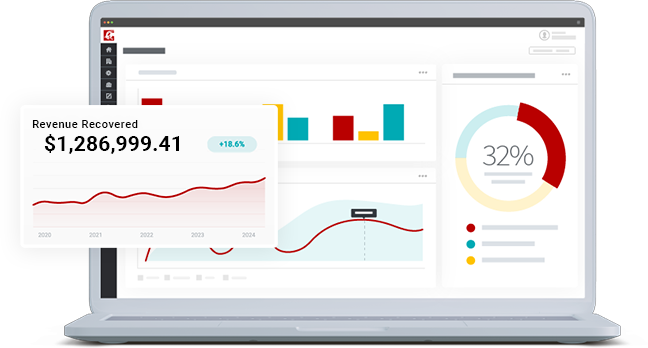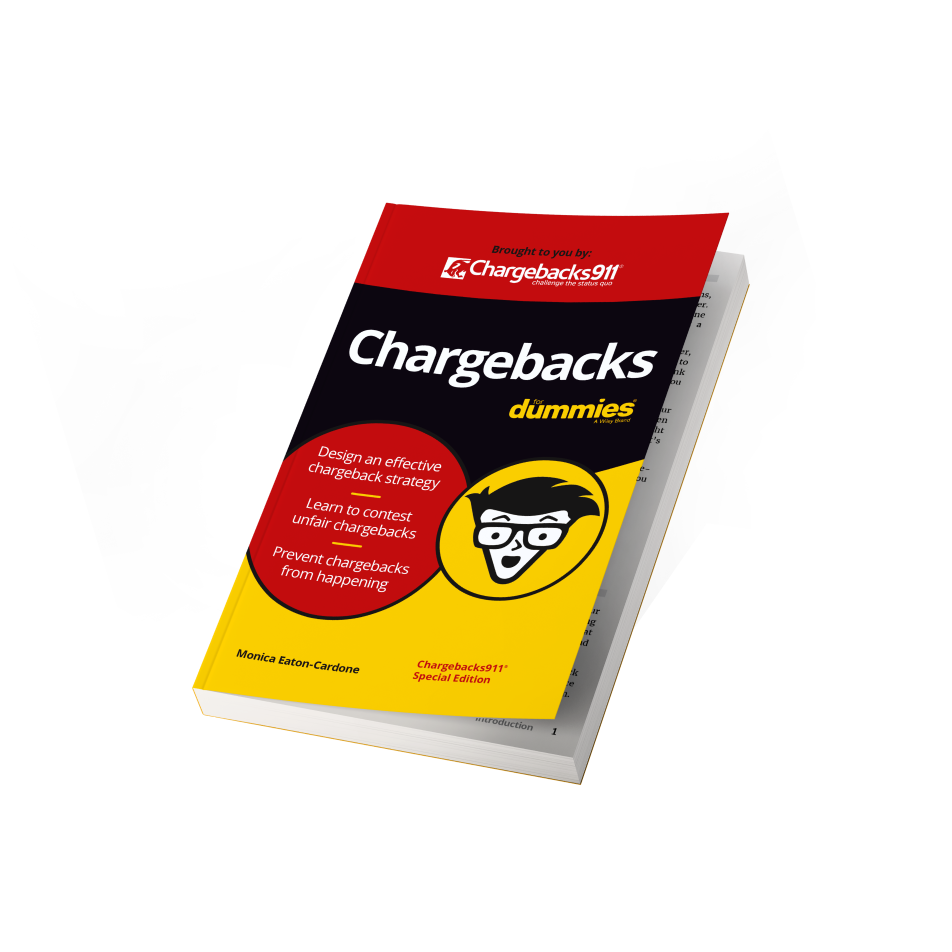Insulating Your Business From Overpayment Scams & Fraud
Try to imagine this scenario: you make a sale through an online marketplace or commercial portal. The buyer contacts you for prompt payment, and actually offers to pay more than you initially asked. The only catch: they ask you to refund the overpayment portion to a third party.
The buyer might claim it’s for a private shipping service, or to cover customs costs. More likely than not, however, it’s a textbook example of an overpayment scam.
Overpayment scams can take many forms, but generally speaking, they exist to rip you off through redirected funds. So, let’s find out how they work, what they entail, and what you can do to avoid them.
Recommended reading
- Credit Card Cloning: How it Works & How You Can Prevent It
- The Top 10 Prepaid Card Scams to Watch Out For in 2025
- How do Banks Conduct Credit Card Fraud Investigations?
- What is Smishing? How to Identify & Prevent SMS Text Scams
- How Clean Fraud Works: Tactics, Red Flags & How to Prevent
- How Card Cracking Works: Tactics, Red Flags & Prevention
What is an Overpayment Scam?
- Overpayment Scam
Most of the time, overpayment scams revolve around someone overpaying for an item using a stolen credit card, check, or money order. The buyer arranges the return of the overage through a third account, then disappears. The aim is to convert the available account balance or credit line to liquid cash.
[noun]/Ōvər • pā • mənt • skam/
An overpayment scam refers to a cash forwarding or advance payment fraud tactic. Fraudsters will use stolen credit card details to initiate a transaction, then offer to overpay the total amount due. Once the overage has been agreed to, the fraudster will request the overage be returned to a different payment account or another third-party source.
Once the legitimate accountholder discovers the fraud, they will file a chargeback, leaving the seller holding the bag for the losses.
How Do Overpayment Scams Work?
A pretty typical overpayment scam might work something like this:
- You list a product or service for sale online. For example, it may be a used car, furniture set, or costly electronic device.
- You receive a DM or email offering to pay you more for the item than your listed price. You’re told this overage is to cover shipping, handling, or some other charge.
- The buyer sends you a digital payment, or a check or money order. The buyer claim that the overage is to pay for shipping or handling and must be made out to a third party or secondary account.
- You deposit their check or money order or send the additional funds electronically, and send the goods along to the buyer, as per their instructions.
- Your bank or processor informs you that the original payment method was fraudulent. You don’t get to keep the funds, and the fraudster has disappeared with your goods.
Why Do Sellers Fall Victim to Overpayment Scams?
Now, the scheme I outlined above probably seems sketchy to most of us right off the bat. However, depending on the context of the sale, overpayment scams might not be so easy to spot.
There are a few factors to consider here. For example, the scammer may:

Overpayment scams are not the same as return fraud, but the tactics are similar.
The main difference between overpayment fraud and return fraud is the methodology. Overpayment scammers may be able to steal the funds and items from the original transaction like most return fraudsters. However, they add on that additional repayment scam at the end. In essence, they’re victimizing you twice.
The Consequences of Overpayment Scams
Let’s face it: overpayment scams can lead to a lot of headaches for sellers like you.
You might be trying to run a small business. If so, your money is not unlimited, and your support systems are relatively few and far between. Thus, losing money to a carefully executed scam like this can really make life difficult.
Here are a few ways overpayment scams can impact your bottom line:

Recognizing Red Flags of Overpayment Scams
While there’s no foolproof way to detect an overpayment scam, be on the lookout for these common red flags if you suspect foul play:
Buyer Insists on Paying More Than the Listed Price
As we stated before, deliberate overpayments among real buyers are rare. If a buyer asks to pay more than what you’re listing an item for, it’s probably not because they’re being generous. Your best course of action is to refuse the transaction and cease contact with the buyer.
Buyer Asks for a Refund Before the Initial Payment Clears
A buyer reaches out and pressures you, demanding a refund from you before the payment even clears. It’s likely a high-pressure tactic preying on your desire to provide a good customer experience. If you receive an urgent refund request like this, wait for the payment to clear — or fail on its own — before doing anything.
Buyer Pays Using an Unconventional or Non-Secure Method
Virtually all of your legitimate customers will pay using a debit, credit, or prepaid card. If a buyer insists on using an unconventional payment method (e.g. via check by mail), politely decline their request and suggest an acceptable alternative instead. If the buyer refuses or continues to insist on a certain payment method, they’re probably not a real customer at all.
Real-World Examples of Overpayment Scams
Overpayment scams aren’t just a theoretical threat. Fraudsters who carry out these attacks cause billions of dollars of losses to legitimate businesses, consumers, and governments per year.
To help illustrate, here are a couple of real-world, “ripped-from-the-headlines” examples of overpayment scams targeting victims in the Detroit area:
Man Targeted by Overpayment Scam
In 2021, Southfield, MI resident Michael Pugh II was applying to a job listing on Indeed which advertised a remote position. One of the recruiters reached out to Pugh, but instead of offering him a job, they told Pugh to purchase a printer as part of the onboarding process.
In an interview with WXYZ-TV, Pugh II recounted that the fake employer promised that this was a routine practice, and that he’d receive reimbursement via Bitcoin. Pugh grew even more suspicious when he was told that, to receive the money, he’d have to go to a specific Bitcoin ATM to make a withdrawal.
The man would’ve been right to reject the offer. But, scammers often target individuals looking for remote work as victims of overpayment scams specifically because they’re often desperate for work and happy to go along with any offer, no matter how odd the “recruiter’s” requests are.
Nonprofit Targeted in $7,000 Overpayment Scam
In 2024, Detroit nonprofit Alternatives for Girls, a women’s shelter in the city, received a $7,000 donation via check from a business called “Michigan Licensing@Regulations.”
Shortly after the nonprofit received the check, they were contacted by the company. The donor claimed that the gift was “accidentally larger than planned and that a portion would need to be returned immediately via wire transfer.”
Upon depositing the check, Alternatives for Girls’ Director of Finance was informed by the organization's financial institution that the check was fraudulent. Luckily, the nonprofit had yet to issue the scammer a refund for the “overpayment,” averting a loss that would have otherwise occurred.
Should I Report Overpayment Fraud?
Yes. You should report overpayment fraud to your financial institution, then alert the Federal Trade Commission (FTC).
Anytime you recognize fraud, you should report it to your bank first, then contact the Federal Trade Commission about the scam as soon as possible.
According to the FTC, they share internet scam reports concerning telemarketing, identity theft, and others through Consumer Sentinel. This is a secure, online database available to hundreds of civil and criminal law enforcement agencies in the U.S. and abroad.
While it’s not likely that you’ll be able to recover the funds after such an incident, reporting an overpayment scheme does have a positive effect. When you report fraud incidents like this, it helps the commission compile data. Hopefully, this will enable them to take steps to mitigate these issues in the future.
You can report fraud on the FTC’s official website.
How to Prevent Overpayment Scams
So, we should now fully understand what payment scams are, how they work, and why we really want to avoid them. Next, let’s talk about how we can prevent them from happening in the first place.
Here are a few tips to avoid overpayment scams:
Ask for Help When Needed
Lastly, as a seller or merchant, you are responsible for any revenue lost to overpayment fraud. Banks and processors wash their hands of the situation the second the scam is reported. So, it’s very important for you to keep an eye out for unusual consumer behavior and protect your business from fraudsters.
Having said that, there are institutions and agencies available that are ready to help you craft an effective fraud mitigation strategy.
At Chargebacks911®, we create custom fraud management strategies for merchants tailored to your company’s unique needs. Contact us today to learn how we can help you fight back against return fraud, friendly fraud, and many other threats.
FAQs
Can someone scam me by sending me money?
Yes. Never accept an overpayment for any product or service, and be extremely wary of anyone attempting to promote one.
What is an overpayment scam?
An overpayment scam refers to a cash forwarding or advance payment scheme. Fraudsters will use stolen credit card details to initiate a transaction, then offer to overpay the total amount due. Once the overage has been agreed to, the fraudster will request the overage be returned to a different payment account or another third-party source.
How do overpayment scams work?
Overpayment scams typically involve a seller listing a high-value product or service for sale. The seller then receives a message offering to pay more for the item than the asking price. The overage is often claimed to be meant for shipping or some other charge, and must be made out to a third party or secondary account.
The buyer sends a fake check or money order featuring the overpayment, or pays via a stolen credit card. Once the seller deposits their funds, the bank informs tem that the original payment method was fraudulent. By this point, the scammer has vanished with the goods, as well as the stolen overpaid funds.
Is an overpayment scam the same as refund fraud?
Overpayment scams are related to return fraud, but are not the same thing. At its core, an overpayment scam relies on the same tactic of using stolen banking or credit card credentials to funnel false refunds and returns to their personal credit cards or bank accounts. However, refund fraud is usually not intended as a malicious attempt to “scam” anyone.
How should I report overpayment fraud scams?
Anytime you recognize fraud, you should report it to your bank first, then contact the Federal Trade Commission about the scam as soon as possible. While it’s not likely that you’ll be able to recover the funds after such an incident, reporting an overpayment scheme does have a positive effect. You can report fraud on the FTC’s official website.
How can I protect myself against overpayment scams?
You can avoid overpayment scams by being wary of any customer offering to overpay. You should also verify cardholder credentials before a purchase, and never forward funds or bend your own rules to accommodate a potential buyer.














